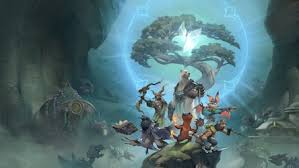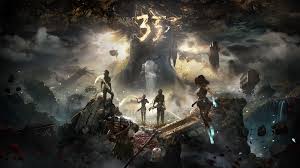Stellaris: Navigating the Cosmos Between Strategy and Storytelling
Stellaris, a grand strategy game by Paradox Interactive, offers players the vastness of the universe as their playground, filled with endless possibilities and challenges. As with any endeavor of such galactic proportions, Stellaris presents a spectrum of features that can be both alluring and daunting, depending on the perspective of the spacefarer. Let’s delve into the cosmos of Stellaris to understand its strengths and areas where it might leave players wanting more.
Pros:
- Immersive Exploration and Expansion: Stellaris shines brightest in its exploration phase. The game offers a sense of wonder as players send out science ships to discover new star systems, anomalies, and galactic mysteries (Rock Paper Shotgun) (Eurogamer.net).
- Deep Customization: From species creation to government types, Stellaris allows a high degree of customization, enabling players to craft their unique space-faring civilizations with distinct traits, ethics, and technologies (Rock Paper Shotgun) (Eurogamer.net).
- Dynamic Diplomatic and Strategic Gameplay: The game’s procedural generation of alien races and empires ensures that each playthrough offers new diplomatic challenges and strategic considerations. Aligning with or against various alien species based on their traits and government types adds depth to the gameplay (Rock Paper Shotgun) (Eurogamer.net).
- Spectacular Space Battles: While players have limited control during battles, the visual spectacle of large fleet engagements is undeniably captivating, with vibrant laser exchanges and the destruction of colossal ships (Eurogamer.net).
- Complex Late-Game Scenarios: Stellaris maintains its challenge into the late game, with the emergence of powerful federations and the potential for catastrophic events that can upend even the most dominant empires (Eurogamer.net) (PCGamesN).
Cons:
- Simplified Combat Mechanics: Despite the visual flair, the game’s combat system can feel overly simplistic, with limited player engagement during the actual confrontations. The outcome often boils down to having superior numbers or technology rather than tactical maneuvering (Eurogamer.net) (PCGamesN).
- Static Galaxy Map: Despite the dynamic events that can occur within the game, the galaxy map itself can feel somewhat static and lacking in response to the dramatic changes that might be happening, such as the destruction of entire star systems (PCGamesN).
- Potentially Underwhelming Endgame Mechanics: Some players may find the endgame mechanics introduced in expansions like Nemesis to be more thematic than practical, with features such as the galactic custodian or senate powers feeling less impactful than expected (PCGamesN).
- Steep Learning Curve: For newcomers, Stellaris can present a daunting array of systems and mechanics to master, which might be overwhelming without sufficient guidance or tutorials (Rock Paper Shotgun) (Eurogamer.net).
In essence, Stellaris offers a grand canvas for those who dream of carving out their corner of the universe, with its depth of customization, strategic gameplay, and the sheer scale of its galactic stage. However, it’s not without its flaws, particularly in the areas of combat and some endgame scenarios, which may not fulfill the expectations set by its expansive setup. Whether these issues are mere hiccups in an otherwise stellar journey or significant obstacles will depend largely on individual player preferences and play styles. For those willing to embrace its complexity and occasional imperfections, Stellaris promises an engaging adventure among the stars.
For more details on Stellaris, you can visit the original reviews and discussions that contributed to this article: Rock Paper Shotgun (Rock Paper Shotgun), Eurogamer (Eurogamer.net), and PCGamesN (PCGamesN).












